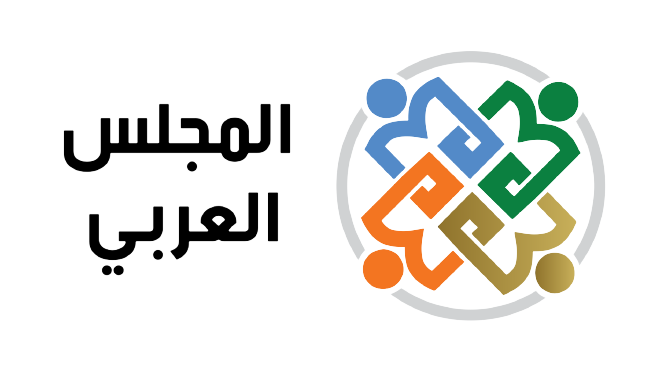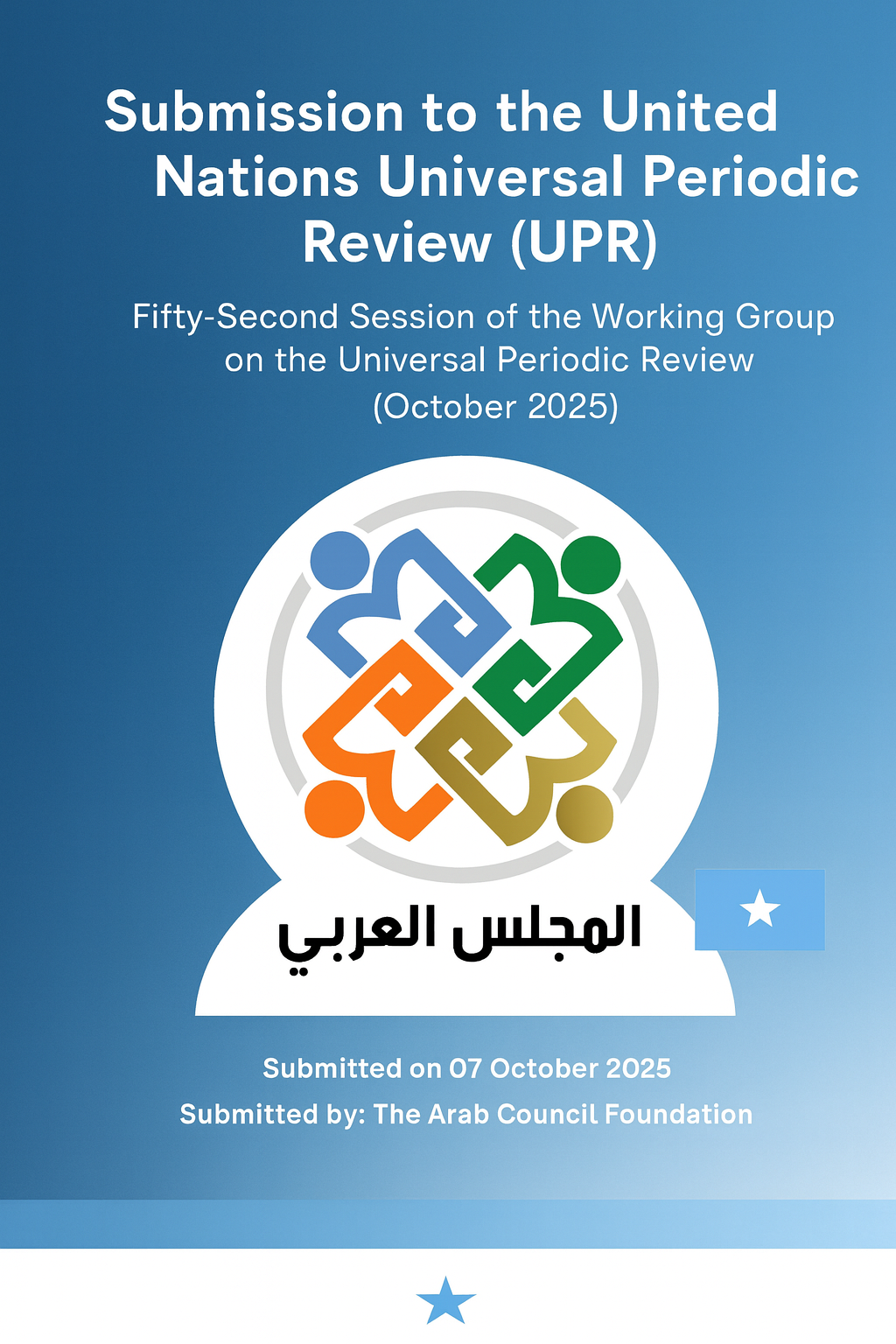This report, submitted by The Arab Council Foundation to the Working Group on the Universal Periodic Review (Fifty-Second Session, October 2025), aims to shed light on the human rights situation in the Federal Republic of Somalia from two main perspectives: the rights of the child and economic and social rights. The analysis is presented in light of Somalia’s international and regional obligations, and the persistent challenges that continue to hinder their effective implementation.
The report shows that Somalia still suffers from a long legacy of armed conflict and internal divisions that have weakened state institutions and negatively affected the government’s ability to protect human rights and provide basic services.
Despite Somalia’s accession to several key international instruments — such as the Convention on the Rights of the Child (CRC) and the International Covenant on Economic, Social and Cultural Rights (ICESCR) — the effective implementation of these obligations remains severely limited due to weak institutional capacity, insecurity, and insufficient funding.
With regard to children’s rights, the report highlights that over three million children remain out of school, while child recruitment continues to be practiced by armed groups, most notably Al-Shabaab. It also underscores the persistence of early marriage and sexual violence against children, among the most widespread violations in the absence of an effective protection framework and independent accountability mechanisms.
In terms of economic and social rights, Somalia faces a protracted livelihood crisis: nearly 70% of the population lives below the poverty line, and the majority of households depend on humanitarian assistance.
The worsening food insecurity and recurrent droughts have directly endangered the lives of millions, especially women and children.
The healthcare system remains nearly collapsed, with the country recording among the highest maternal and child mortality rates globally.
The report concludes that the protection of human rights in Somalia requires a comprehensive and integrated approach based on:
-
Strengthening state institutions and building an independent judiciary;
-
Reforming national legislation in line with international conventions;
-
Adopting a national strategy for the rights of children and women; and
-
Developing the health and education infrastructure with international support.
In conclusion, The Arab Council Foundation emphasizes that achieving social justice and sustainable development in Somalia will not be possible without investing in people — especially children and women — as they are the foundation of any genuine and lasting national revival.
To read the full report Somalia Submission to the United Nations Universal Periodic Review (UPR) Fifty-Second Session of the Working Group on the Universal Periodic Review (October 2025).docx


